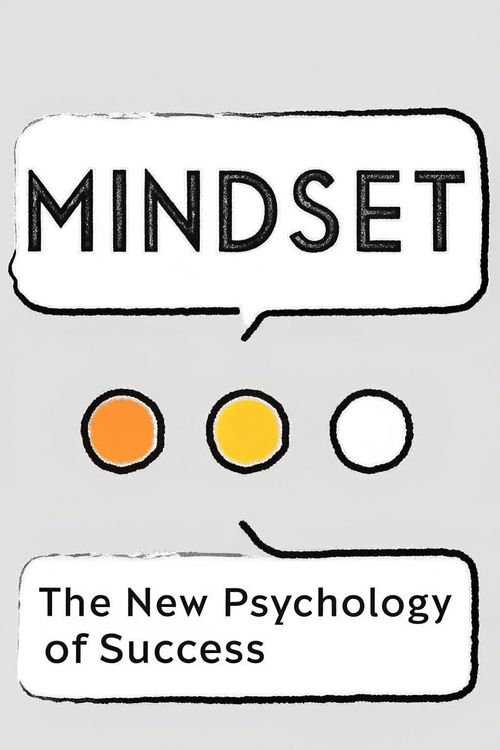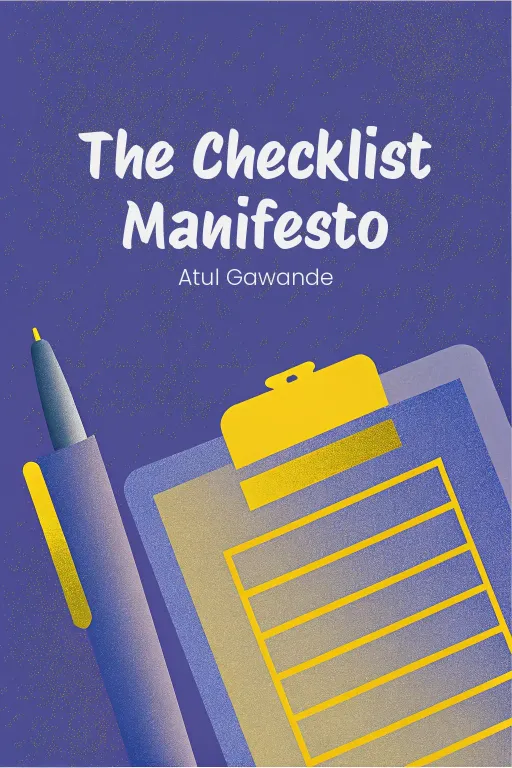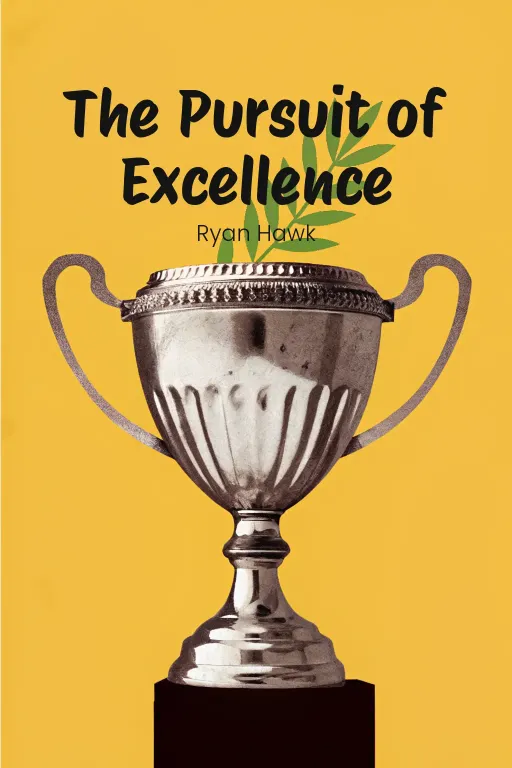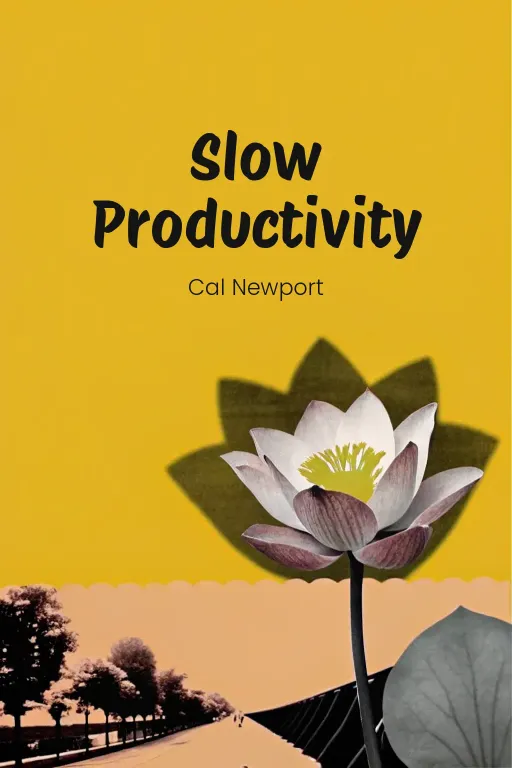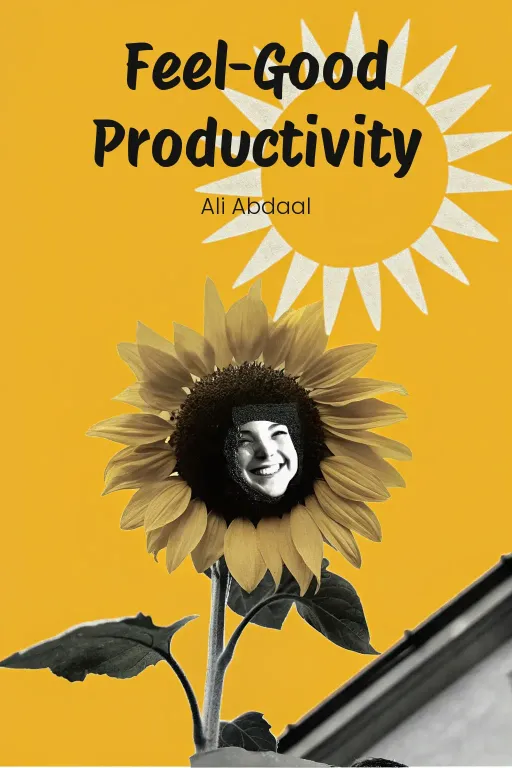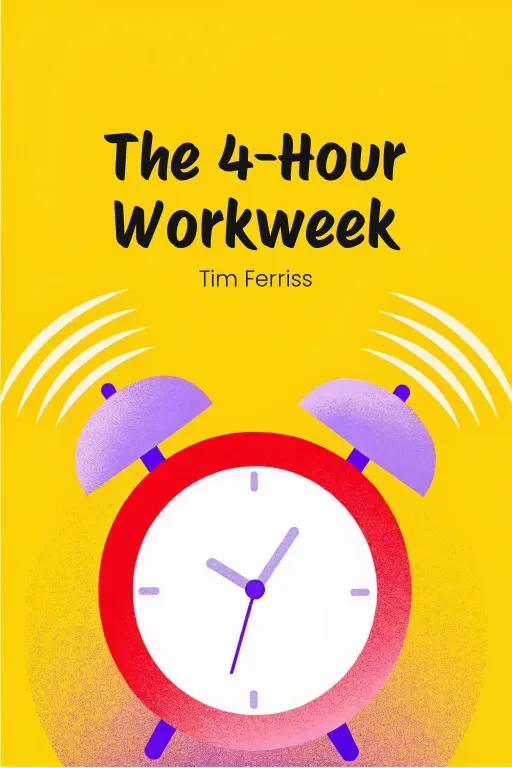
Recharge: Hack Your Energy, Not Just Time
Podcast by Beta You with Alex and Michelle
Managing Energy, Not Time, Is the key to High Performance and Personal Renewal
Introduction
Part 1
Alex: Ever get to the end of the day and just think, "Where did all the time go?" Michelle: Or even worse, that feeling of, "Wow, I’m completely drained... but what did I actually accomplish?" Alex: Right? It's this crazy modern problem – our calendars are overflowing, but we’re all running on empty. So, today we're tackling something that could “really” change things for you. We're not talking about time management, but energy management. Michelle: Energy, huh? The thing we all crave, but usually try to find in an extra-large latte. Alex: Exactly! Well, the book The Power of Full Engagement by Jim Loehr and Tony Schwartz shifts that whole perspective. They say peak performance isn't about pushing yourself harder, it's about smart energy management. It’s about mastering energy across four key areas: physical, emotional, mental, and even spiritual! And, importantly, building structured rituals that connect with your core values to keep you sustained. Michelle: So less about cramming more into an already packed day, and more about…recharging those depleted mental and emotional batteries, you're saying? Alex: Absolutely. Today, we’re going to explore three key ideas from the book. First, we’ll look at why energy, and not time, should “really” be your main focus. Second, how to work with the natural cycles of exertion and rest to actually boost your productivity. And third, the surprising power of rituals that reflect your values to help you refocus and feel truly fulfilled. Michelle: So essentially, it's about learning to treat your mind and body like a “really” sophisticated piece of tech – just without the instruction manual, right? Alex: <Laughs> you could say that. So, let's jump into this energy revolution and see how it can transform things for all of us.
Energy as the Fundamental Currency of Performance
Part 2
Alex: Okay, Michelle, so last time we were talking about how energy, not time, is really the key to performing at your best. So, to kick things off, why exactly is energy a better way to measure productivity than just tracking time? Lay it on me. Michelle: Yeah, I'm curious about that too. I mean, time has always seemed like the obvious metric, right? Alex: Well, Loehr and Schwartz make a really good point. Time is finite. You can't create more of it and once it's gone, it's gone. But energy? That's expandable and renewable. Think of energy as your “capacity to work,” and that includes everything: your physical stamina, your mental focus, your emotional resilience, and even your sense of purpose. So unlike time, it's not a fixed thing. You can actually cultivate, replenish, and even increase it over time. Michelle: Okay, I’m listening. But if this energy concept is so groundbreaking, why is everyone still obsessed with time? Endless meetings, overflowing inboxes, and jam-packed schedules – it seems like we’re all convinced that cramming more into our day is the answer. Alex: That's “exactly” why we need to rethink things! Take this example from the book: you're in a four-hour meeting, right? Your focus probably tanks after the first hour if you're not actively managing your energy. By the third hour, how productive are you really? So many companies focus on time efficiency, completely missing the fact that those “efficient” hours often don't amount to much. Michelle: So kinda like driving a car on fumes, right? You're behind the wheel, but good luck making it to the destination. Alex: Exactly! And it’s not just about upping productivity, it's also about preventing burnout and disengagement. If you mismanage your energy, you deplete your resources. That leaves you emotionally drained, mentally foggy, and physically exhausted. Michelle: Okay, makes sense. That leads us neatly into the four dimensions – physical, emotional, mental, and spiritual. Run us through that, Alex. How do they all interconnect? What's the secret sauce here? Alex: Let's start with physical energy; that's your foundation. Think of it as your body's fuel tank. Sleep, hydration, nutrition, and exercise – that keeps the tank full. But if you're constantly burning the candle at both ends, skipping meals, and pounding coffee instead of water, you're basically running a sports car on empty. Michelle: So, if our bodies are temples, most of us are living in condemned buildings, at best. Alex: <Laughs> Exactly. And emotional energy, that's the vibe inside the temple or fixer-upper. Positive emotions like gratitude, empathy, and optimism fuel us. Stress, frustration, and impatience drain us. And emotions are contagious. A workplace with is powered by strong emotional energy thrives while one mired in negativity… well, you can imagine. Michelle: I’ve definitely seen that play out. You walk into an office, and you can instantly tell whether there’s good energy or if it’s just a soul-crushing atmosphere where you're afraid to breathe too loudly. Alex: Yep, leaders set the emotional tone. Then there’s mental energy: your ability to focus, problem-solve, and make good decisions. Mental energy thrives on clarity and breaks! Switch off notifications when you need to focus deeply. Step away for a quick reset... Michelle: Is that why my brain feels fried after a day of relentless multitasking? Like my mental energy is just leaking out? Alex: Exactly! And finally, spiritual energy, which is the most profound. This is, like, your sense of purpose. When your actions align with your core values, you unlock incredible resilience and motivation. But if you feel disconnected – like you hate your job or your goals don’t resonate with you – you'll still feel drained, no matter how much sleep or coffee you get. Michelle: So these four dimensions, they're like a domino effect, right? If I screw up my physical energy - skip sleep for example - it's harder to be emotionally stable, mentally sharp, or spiritually engaged. Alex: Exactly! They’re all linked. Think of it like an orchestra. If one instrument is out of tune, the entire performance suffers. And that’s why this whole “just grind harder” mentality is so damaging because we often write off recovery as laziness, but purposeful rest is actually essential for sustaining those energy dimensions. Michelle: Which circles back into the idea of oscillation, right? The stress-and-recovery cycles that athletes use? Alex: Exactly, and that’s where they borrowed from sports science. High performers don’t operate at 100% all the time. They push hard during performance phases but then prioritize recovery to replenish their minds and bodies. Loehr and Schwartz basically say we need intervals of strain and renewal. Like sprints followed by rest to achieve sustainable productivity. Michelle: Okay, I get that in theory, Alex. But how do regular people incorporate this "oscillation" into our crazy lives? I mean, most of us can't just escape to a yoga retreat whenever things get stressful. Alex: Well, that’s where practical strategies come in, and the book offers plenty. Start by doing an energy audit – identify where you lose the most energy during the day. Is the commute killing you? Does scrolling social media sap your mental energy? Once you see these energy leaks, you can make small changes, like a five-minute walk instead of diving into your emails first thing. Michelle: So energy audits highlight the ways we unknowingly undermine ourselves? Alex: Yes. Then, once you understand your energy patterns, you create rituals to reinforce better habits. Rituals are key; they're intentional, predictable actions that conserve mental energy by building in structure. Like starting each morning with hydration and stretching, or winding down with a screen-free hour before bed. Sounds simple, but these little things add up. Michelle: Ah, let me guess, this is how Roger B., the corporate drone stereotype in the book, manages to pull himself out of the rut? Alex: Exactly! Roger's downward spiral started because he equated time with productivity, packing his schedule without realizing he was draining his energy in all those dimensions. It was only when he implemented rituals – morning runs, evening reflections – that he started functioning like a productive person again. That story proves that managing energy can totally transform fulfillment and performance. Michelle: So it's not just about practical techniques, but also about reconnecting to what matters. That's the bigger takeaway, right? Alex: Absolutely! Shifting from time to energy changes everything – not just how we work, but how we live. Our choices, habits, and systems need to prioritize sustainable energy. So it’s not just about chasing efficiency; it’s about cultivating meaning. When that happens you move from survival mode to truly thriving.
The Oscillation Principle: Balancing Stress and Recovery
Part 3
Alex: Okay, Michelle, so with energy as our key resource, we’ve got to figure out how to manage it. Right? That's where the oscillation principle comes in. Basically, it's all about finding that sweet spot between pushing yourself and taking a break. Michelle: “Oscillation principle,” Alex, sounds a bit fancy, doesn't it? But I think I get what you mean. So, it's about balance, like a seesaw, between stress and recovery. Alex: Exactly! Rhythm is key. You can't just keep going without stopping. That's burnout city. Loehr and Schwartz argue it's about this cycle of pushing, then recovering. Stress is actually important here, Michelle. It's not about avoiding it completely, but you've got to actively balance it with recovery. Michelle: Okay, I'm following you. So, stress plus recovery equals growth. It's kind of like hitting the gym, right? You strain your muscles, they recover, and boom, you're stronger. But, uh, my office isn't exactly filled with weights. How does this translate to, say, a desk job? Alex: Great analogy, though! The authors actually say this applies to all types of energy – physical, emotional, mental, even spiritual. Take mental energy, for instance. Imagine you've been laser-focused all morning, right? If you don't step away – even for a quick walk or just closing your eyes – your focus tanks. You'll get less and less done. Recovery, even short breaks, resets your mental energy so you can come back sharper. Michelle: So, recovery isn't some bougie luxury, it’s functional. Like a pit stop for your brain. Alex: Exactly! But, you know, staying in recovery mode forever doesn't lead to growth either. Stress, when you apply it deliberately, pulls you out of your comfort zone. That's how you build endurance, hone your skills. Without recovery, chronic stress just wears you down. Michelle: I get the theory. Now, hit me with some real-world tactics. Things we can actually do daily to balance stress and recovery. Alex: Okay, Loehr and Schwartz have some good ideas. Micro-breaks are a simple, but powerful, one. Say you've been glued to your screen for 90 minutes. Step away for five to stretch, walk, deep breaths...small resets prevent that zombie-like afternoon slump. Michelle: "Micro-breaks," huh? Sounds like productivity theater, Alex. What happens when you tell your boss, "I need to recover”? Alex: Well, the science backs it up! Studies show these small breaks improve overall output. NASA, for example, found pilots who napped during long flights performed better. It's cognitive science, not slacking off. Michelle: Permission to nap officially granted by NASA! But seriously, it can't just be quick pauses, right? What else do we have in our energy toolkit? Alex: Another great tactic is to build structured rituals. Habits make recovery automatic. End your workday with a gratitude exercise, maybe schedule 10-minute mindfulness mid-morning. Over time, these become automatic, which saves you mental energy deciding how to reset. Michelle: Rituals seem do-able. But let's be real. What if you're drowning in responsibilities, no room for breaks or self-care? I'm talking packed schedules, parenting chaos... Alex: That's where mindset shifts become key. Recovery doesn't have to be big to be effective. It's about working with what you do have. There is a story on the book about Roger B., he introduced tiny recovery rituals into his crazy routine. A morning walk to a bookstore to clear his head did the trick. It wasn't the length that mattered; it was the intent. Michelle: So, Roger goes from burnt-out exec to taking control with tiny steps? Alex: Exactly! Once he saw the impact, he built bigger habits, like alternating workout intensities. Eventually, it flowed into all areas—better focus, being more present at home. His recovery wasn't about escaping stress—it was about balancing it with renewal, leading to deeper engagement. Michelle: This emphasis on intentionality resonates with me. It's about making even the smallest moments count. How about we zoom out for a broader perspective? Alex: The oscillation principle isn't just a productivity hack. It's a mindset shift. It challenges the idea of unrelenting “busy-ness” as success. It's about rhythms fueling sustainable performance. By respecting the stress-recovery cycle, we restore energy and create the conditions for growth, creativity, and purpose. Michelle: So, it's not just about surviving the grind, but thriving in a way that's actually, well, humane. I like that.
Rituals and Alignment with Core Values
Part 4
Alex: So, understanding this balance really sets the stage for practical energy management, right? That brings us to a key idea from the book: rituals, and how they align with your core values. Alex, tell me, what's the big deal with rituals in this whole energy thing? Alex: Well, Michelle, rituals are transformative because they get us out of the trap of only relying on willpower, which, as we know, is limited. Loehr and Schwartz say that rituals are deliberate, structured behaviors that match your values, kind of automating positive habits. By building purpose into these repetitive actions, rituals create stability and help manage energy sustainably, even when things around you are crazy. It's about moving from just reacting to planning your life. Michelle: So, if I understand correctly, rituals are the “easy mode” for life? I don’t have to argue with myself every Monday morning to go for that run because it’s already part of the plan? Alex: Exactly! Rituals replace that everyday decision fatigue with automatic action. Imagine if you really value health, but set a huge goal, like, running a marathon without any prep. You'll probably burn out. But if you begin with something small—like a 10-minute jog three times a week—it becomes a habit over time. Your brain stops using energy wondering, should I do this? Instead, it just accepts, this is who I am. Michelle: Okay, but could rituals just turn into another kind of “productivity trap?” How do you make sure they match what’s important and avoid just ticking another box on a to-do list? Alex: That's a great question! The authors emphasize that rituals are strongest when they align with your core values. Think about someone who really values family but spends their evenings stuck on work emails. If they create a ritual, like having dinner with their kids every night and intentionally turning off work afterward, that half-hour shows what their priorities really are. So, it’s not about doing more; it’s about actions that really matter, and are closely tied to your values. Michelle: Right, I get that. But what if someone’s values are kind of… fuzzy? Maybe they’re stressed out, juggling too much, and don’t even know what their priorities are. How do they figure out where to start? Alex: Well, start by asking yourself two key questions: What really matters to me? and Where do I want to put my energy? The book gives examples, like Roger B., that overworked executive who felt cut off from his family and totally burned out at work. He realized his priorities were his daughters, his wife, and his own health—not just climbing the corporate ladder. Once he knew those values, he built every ritual to support them. Michelle: Okay, Roger B., the guy who was doing everything wrong at first. He didn’t just wake up one day enlightened, did he? Can you walk us through how he got there? Alex: Sure, Roger's story is a really clear example. Before, he was spending hours stuck at his desk and didn't have any routines to recharge his energy. Emotionally drained, physically exhausted, and mentally all over the place, family time? Non-existent. It took a wake-up call to admit he was not living by his values. Michelle: And this wake-up call involved… what, therapy? Some dramatic moment during a midlife crisis? Alex: Nope, not at all! It started small. His first step was a little ritual he created while traveling for work: morning emails to his daughters. Just short notes like, “Good luck on your test today. I’m proud of you.” The impact was huge. His daughters started looking forward to those notes and felt bad when he forgot. That positive feedback showed the emotional value of being present, even in small ways. Michelle: So, those emails were like breadcrumbs guiding Roger back to what was really important—family connection, got it. What else did he change? Alex: At home, Roger changed his mornings to focus on quality time with his wife. Instead of just reading the newspaper during breakfast, he engaged in conversations—a small but meaningful change. For his physical energy, he started with manageable workouts, which eventually led to a routine that included family fitness outings. By seeing exercise as shared family time, it became a ritual that supported both health and connection. Michelle: Okay, but I doubt most people can create some perfect work-life balance overnight. Was juggling all these changes challenging for him, especially as a busy executive? Alex: That’s what’s great about starting small. Roger didn’t change his whole life immediately—he added one ritual at a time. And the rituals weren’t complicated or time-consuming. They were designed for consistency and impact, like his strategic breaks at work. Instead of multitasking during lunch, he planned walking trips to a bookstore. These small recovery rituals restored his energy and allowed him to return to work more focused. Michelle: All of this sounds good in theory, but stepping back for a second, how do we know rituals aren’t just some personal fluke that worked for Roger? Alex: Well, the science backs it up. Regular rituals—like family meals or team-building exercises—not only sustain individual energy but also strengthen relationships and communities. Research shows that families who maintain consistent rituals, like weekend activities, report stronger emotional well-being and a better sense of belonging. And at work, companies that encourage rituals for recovery and mindfulness see higher employee engagement and lower burnout rates. Michelle: Okay, I’m convinced. Let’s wrap this up for our listeners. Rituals aren’t just about self-optimization; they’re a way to take back time, energy, and meaning. What I’m hearing is, don’t just build rituals for the sake of having rituals. Build them to create the life you want to live! Alex: Exactly! When rituals are connected to your values, they become more than habits—they’re anchors that keep you aligned and energized. And, the best part? Even small, consistent actions grow outward to produce meaningful change over time. It’s about designing your life purposefully, one ritual at a time.
Conclusion
Part 5
Alex: Okay, Michelle, let's bring it all together. We talked about how energy, not just time, is really the key to getting things done and feeling fulfilled. We dug into how managing our physical, emotional, mental, and even spiritual energy helps us stay in the game and avoid burning out. Michelle: Right, and the oscillation point is crucial, isn't it? It's like, balancing those periods of stress and recovery, that's what keeps us going. It’s not about cramming more in; it’s about focusing on what truly matters in a way that actually gives us energy, rather than just draining us dry. Alex: Exactly! And rituals are the unsung heroes here. Whether it's a quick five-minute break, a morning walk, or making sure we have regular family dinners, these intentional habits help us line up what we do with what we care about. It helps us take back control of our energy, doesn't it? Michelle: So, what's the one thing we want people to walk away with today? Alex: Start small, I'd say. Pick just one ritual, one action that really gives you a boost and reminds you of what's important. Whether it's taking a deep breath at your desk, a short walk after dinner, or saying something nice to someone you care about—start building those rhythms. Build rhythms that not only help you perform better but also fuel your sense of purpose. Michelle: So, it's not about being perfect from day one. It's more about making conscious progress, right? You've got to treat your energy like it’s this really valuable resource, because it is. I mean, that's the secret to not just getting by, but actually thriving. Alex: Absolutely. So, thanks for listening, everyone. And until next time, take care of your energy, and it'll definitely take care of you.
